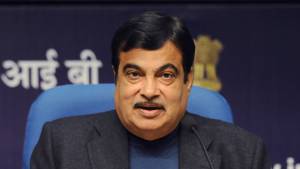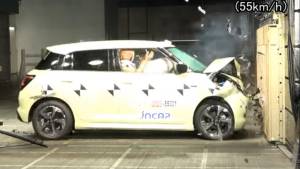FASTag and its problems
Nitin Gadkari is proving to be an earnest Road Transport and Highways Minister, serious about improving things. He has to his credit the commendable Motor Vehicles (Amendment) Bill, which sadly has not been effectively enforced due to the reluctance of various authorities and state governments. The FASTag that was to have become mandatory for all vehicles in India from December 2019 is another of Gadkari's appreciable initiatives. Unfortunately, it too has run into various implementation difficulties with the deadline first being shifted to December 15, and then January 15, 2020.
FASTag and digital payments for toll via a Radio-frequency Identification (RFID) chip card sticker pasted on the vehicle's windscreen, is a great idea. The National Highways Authority of India (NHAI) is supposed to be implementing this electronic toll collection (ETC) program with the aim of reducing the waiting time at toll booths and ensuring smooth flow of traffic. Congestion at toll booths presently results in an estimated annual loss due to wastage of fuel of over Rs 12,000 crores!
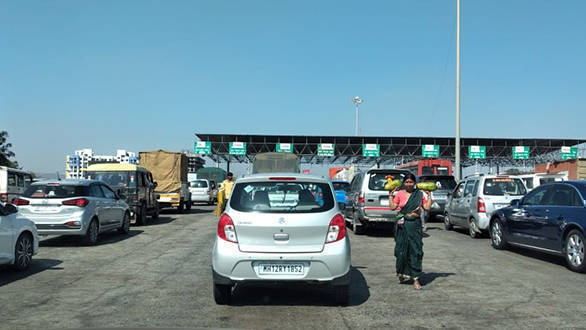
FASTag has many merits, because apart from reducing the waiting time, it could also increase the total revenue from toll. With cash payments, toll booth operators can strike under the table deals with regular users and transporters. But FASTag card readers are connected to automatic barriers at toll booths and the chances of a vehicle driving through without paying toll, are slim. Electronic payment also means a direct deposit in a bank account, thus reducing mistakes in counting and collection. Cash collection is also fraught with the danger of looting and thefts and to prevent this, most toll plazas, especially in states with law and order issues like Bihar and U.P, have armed guards posted 24/7. An electronic payment system would reduce the need for such private armed guards and display of muscle power.
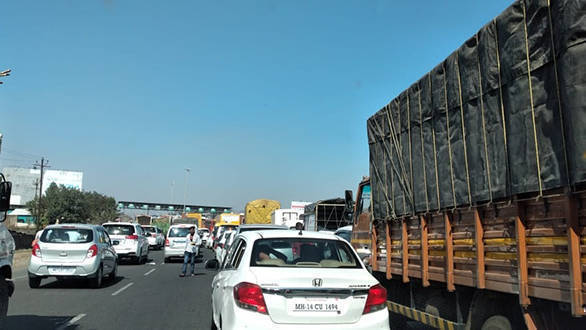
As we have often seen with the Modi Sarkar, even if the idea or policy is good, the implementation can be flawed as has also been the case with FASTag. Ever since the government announced that FASTag would be mandatory, vehicle owners have been running around to get them. Many do not know where and how to buy them, and despite the government's claims, the sale outlets are limited. There have also been some reports of lack of supply of the FASTag stickers. But in my view what is a bigger problem are the documents required to purchase a FASTag. One needs to submit the Registration Certificate (RC) of the vehicle, passport size photograph of the owner, KYC (Know your client) documents as per the category of the vehicle owner and identity and address proof. In case of a company, a certificate of incorporation/ partnership deed/registration certificate of the firm or the PAN Card of proprietor are needed along with a list of directors/partners and the respective addresses!
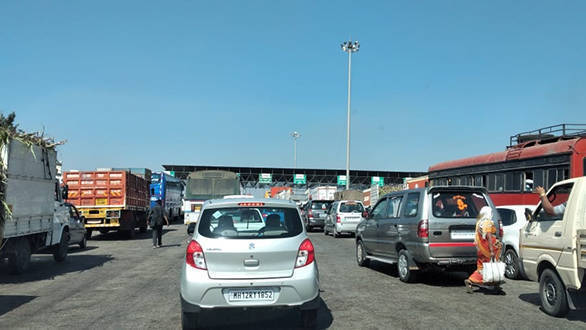
I fail to understand why you need all this, just to get a FASTag RFID chip sticker. It's certainly not a security requirement, because after all what threat can a FASTag sticker pose. Yes I realise that toll rates for light vehicles, and commercial and larger ones with multi-axles vary, and that the right amount must be charged. Apparently the RC book copy, vehicle owner details, etc, ensure that the correct details are registered when the FASTag is purchased. But all this complexity could easily have been avoided by just making different sizes and shapes of the FASTag stickers for the various category of vehicles. A simple and random visual examination at toll booths would ensure that nobody is using the wrong FASTag. This would have allowed for easy and hassle-free purchase of FASTags, as they could have been sold at every place from fuel stations to chai and pan stalls. As for recharging the FASTag, the same online methods, along with an immediate cash recharge at outlets on the highway, would make it so much more convenient and practical.
But we like to complicate matters in our country and don't like simple solutions. So now we still have many vehicles moving on National Highways without FASTags. The government had said vehicles paying the toll in cash after the deadline, will have to pay twice the amount. But I seriously doubt that this has been enforced. In the last few weeks, I have seen many people arguing and getting into fights at toll booths because nobody wants to pay double the toll. And without the presence of police, the toll booth staff is unable to collect twice the amount. These arguments and the fact that you have vehicles without FASTag driving into dedicated electronic toll collection lanes, has led to severe congestion and an increase in waiting time. Yes, the waiting time for vehicles at toll booths has actually gone up after FASTag! This is exactly the opposite of what was planned. As a result, the government has extended the deadline twice and also temporarily allowed 65 select toll plazas with high cash transactions to continue accepting cash till February 15. The reality on the ground is that presently all toll booths are accepting both cash and FASTag and all lanes have become "Hybrid" where both transactions are permitted. Because, in case this is not done, it will lead to massive traffic blockages on all our National Highways. So will a much-needed initiative like FASTag eventually work? Your guess is as good as mine, because Oh Darling, Yeh Hai India.
